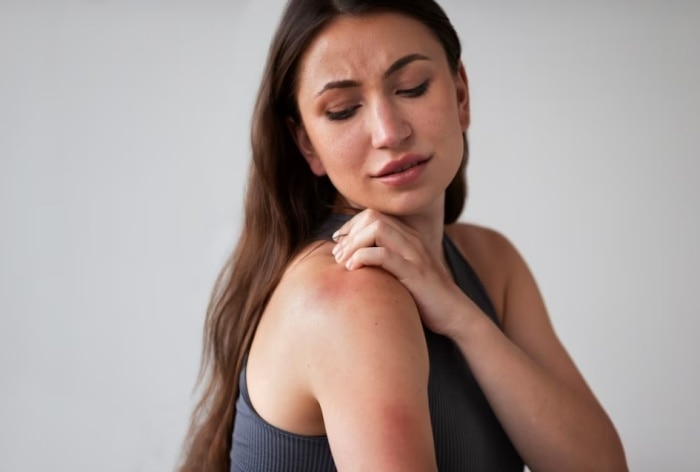Aquagenic Urticaria is a water allergy and an extremely rare health condition that can alter your life forever. A 25-year-old woman from US shared her story of living with this water allergy and here is all you need to know.

Ever imagined a life without water? Wondering that there is no life without water? Well, while water is said to be the most important thing to live, who knew an allergy to water can be life-altering? Tessa Hansen-Smith, a 25-year-old from California live the other life without water. She was diagnosed with an extremely rare health condition called aquagenic urticaria nearly eight years ago and the situation has only worsened since then.
In the age of social media, nothing actually stays hidden. People now use it as a platform to voice their opinions and problems and have conversations. Smith, similarly, shared her story of living with this water allergy and how she takes one day at a time.
But how does one live a life without water? India.com got in touch with experts to understand this rare condition and how exactly survival is possible living with it.
What is aquagenic urticaria?
Aquagenic urticaria is an uncommon disorder where a person’s skin develops itchy, red welts when it comes into contact with water. People with the aquagenic form of urticaria get hives and sometimes itching when their skin comes in contact with water. Though the signs and symptoms can appear anywhere on the body, they are mostly seen in the arms, neck, and upper torso.
Signs and symptoms
Speaking exclusively to india.com, Dr. Ritika Shanmugam, Consultant – Dermatology and Cosmetology, Manipal Hospital, Malleshwaram, Bangalore, elaborated on water allergy and how people live an alternative life. The rash can lead to allergy-like symptoms, possibly due to the release of histamine. In allergic reactions, mast cells beneath the skin release histamine, resulting in allergy-like symptoms that vary depending on the affected body part. The exact reason behind the release of histamine when exposed to water remains unclear.
Several water sources can trigger hives from this condition, such as:
- Rain
- Snow
- Freshwater
- Seawater
- Sweat
- Tears
The temperature of the water doesn’t make any difference to how the condition develops. This type of hives isn’t usually caused by water temperature, pH, saltiness, or stress and anxiety. Aquagenic urticaria reacts directly and differs from cold allergies and heat allergies like cholinergic urticaria.
Is there a cure?
As of now, there is no cure for aquagenic urticaria. The best course of treatment is to stay away from water entirely, however, this isn’t practical for people who have this illness. Thus, to assist you in dealing with the condition, your doctor may recommend drugs and treatments when being exposed to water.
Antihistamine, a drug used to treat allergy-like symptoms, may help in providing temporary relief from itching, swelling, and irritation. Omalizumab may be necessary for some individuals if antihistamines do not help them to prevent flare-ups. Phototherapy is another option that helps these patients by thickening the epidermis (top skin layer) and preventing water from getting under the skin.
If you develop severe aquagenic hives that make you unable to breathe, then you may need to use an EpiPen. These auto-injector pens have adrenaline, also called epinephrine – which is your “fight or flight” hormone.
Is it actually possible to live without water?
After doctor’s diagnoses with aquagenic hives, it’s advisable to minimize contact with water. Still, this isn’t practical for everyday life. Therefore, aim to limit your exposure to water as much as you can. Preventing a flare-up includes:
- Apply mineral oil or 100% petroleum jelly to the skin before showering
- Applying dry shampoo & waterless cleansers during showers
- Taking short, periodic showers
- Wearing clothes that take moisture and sweat away from the skin
What can be alternatives to water?
There are no such alternatives to water as water is a big necessity in our day-to-day lives. People who have the condition can drink water as long as it doesn’t touch their skin and the best cure is restricting their contact with water as much as possible.
